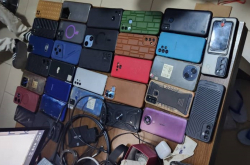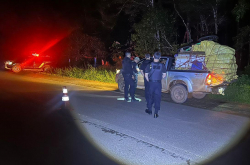Timeframe: 2022 – 2024
Budget: EUR 1 million
Donor: Global Affairs Canada
The situation
Human traffickers and migrant smugglers are taking advantage of the advances in technology to shape and facilitate their illegal business. Social networks for example play a role in connecting migrants and smugglers, allowing them to interact and share information. Instant messaging and real-time geolocation technologies also make it easier to plan and execute journeys.
Organized crime groups misuse online forums to identify victims' vulnerabilities and gain their trust. They also abuse technology platforms to advertise their services as well as target, recruit, transport and exploit victims across the globe.
The Dark web poses another challenge to law enforcement agencies, as it allows criminals to hide their real identities and launder illicit assets more easily. Likewise, data encryption on online services and widely used encrypted apps can make it difficult for authorities when carrying out forensic investigations.
Project aims
We launched Project CCISOM to address the criminal use of new technologies in migrant smuggling and human trafficking from Asia into Canada.
The project’s main aims are to:
- Improve the understanding of online services used to facilitate human trafficking and smuggling of migrants;
- Test innovative tools and methods for analysis and investigative support.
Project activities
Comprising three phases over 26 months, Project CCISOM involves a range of activities including:
- Gathering intelligence on trafficking in human beings and migrant smuggling trends in the Southeast Asia;
- Drafting and disseminating analytical reports on regional modus operandi;
- Designing and delivering training packages on technologies related to the Dark web and virtual assets;
- Using findings from pilot activities to set best practices for investigations into the Dark web and virtual assets;
- Organizing transnational operations.
The five participating countries are Bangladesh, Philippines, Singapore, Thailand and Vietnam.
Countries involved
Related documents

Related news

260 suspected scammers arrested in pan-African cybercrime operation
26 September 2025
Disrupting a Grandoreiro malware operation
18 March 2024





